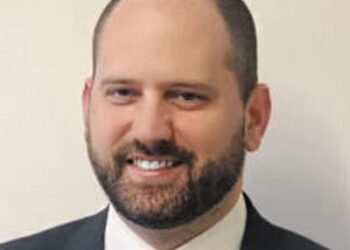The Institute of Public Accountants (IPA) has come out strongly regarding the longevity risks that the superannuation sector faces. What key gaps in the industry do advisers and accountants need to come to terms with?
A lot of our policy in relation to super has been also linked to the small business space and the tax discussion as well.
From our point of view, what we’ve been advocating for a long time [is] around having what we term as ‘demographic-centred’ superannuation policy and [having] a superannuation taxation regime that would encourage people to contribute more to their super rather than be penalised for it. Therefore, having slightly different concessional contributions caps for different age groups.
Now whilst that does exist at the moment, our view is that they should be extended to encourage more activity and planning for the longer term.
Also, there’s a direct correlation between Australian small business owners and operators who effectively see their small business as their form of superannuation and most small business owners… see that as funding their retirement.
Well, in fact, the great risk that we have is a real decline in the productivity of Australia’s small businesses over the last decade, which puts at risk the sustainability of that business model and indeed, in turn, Australia’s own prosperity.
So we’ve been banging on about that quite heavily. I’m not quite sure that it’s been widely acknowledged – [it’s] what we call the ‘productivity crisis’ in the economy. There’s a lot of talk about fiscal crisis and the Budget being in crisis, but what we see as the biggest dilemma facing the Australian economy is one of small business productivity.
If we don’t get this right, the prosperity that Australia has enjoyed over the last 20-30 years is significantly at risk.
Are there any key policy issues you’re lobbying on at the moment, particularly in relation to David Murray’s Financial System Inquiry?
In terms of the tax system, we’ve got a whole range of things in relation to capital gains tax, and we’ve covered off some issues to do with having a different concessional rate of tax for certain small business income to encourage growth in the small business sector. There’s also issues around superannuation compliance; of course, there’s been already a lot of inroads made there.
I think that removing the 10 per cent rule for making concessional contributions is a really important thing to encourage further concessional contributions to super; so removing those barriers to a person providing for their future, but also doing so in the context of taking pressure off the Commonwealth long term.
The SMSF sector is a different beast to other sectors in the superannuation industry. Do the same longevity risks still apply?
I think as a whole, the industry, whether it’s the SMSF, industry or retail [sector], I think there are some general risks. I think probably … less so in the SMSF sector, but I think as a general rule the issues of longevity in superannuation applies to all.
As a general observation, I think there are some concerns right across the sector.
The LISC repeal was blocked in the Senate recently. Have you got any comments on this?
Our very broad appeal to the Senate is that it plays the ‘long game’.
There’s just a desire for certainty and these machinations in the Senate don’t really create for a stable and certain environment and I think the market, whether it’s the superannuation market or indeed the small business sector, they just crave some certainty.
The last thing we need is the Senate, indeed the parliament, effectively playing games with certainty. The economy needs it, the operators need it. Our plea really is that the Senate gives business and the broader community certainty for their own planning.
We can’t really have a situation where people are waking up one day to a certain reality and then waking up the next to another.
It’s just completely counterproductive.
Andrew Conway is the chief executive officer of the Institute of Public Accountants.



This is one of several changes that makes sense to me. The elimination of the 10% rule would allow all to contribute / top up CCs at year end..which may improve savings.
In addition including SG in taxable income, and allowing a 15% rebate (and no 15% tax on CCs) makes sense to me. It equalises the tax savings benefit across high & low earners (i.e. increase the incentive to save for lower earners – who need the incentive more).
Also purchases of (deferred)life time annuities should be 100% tax deductable…